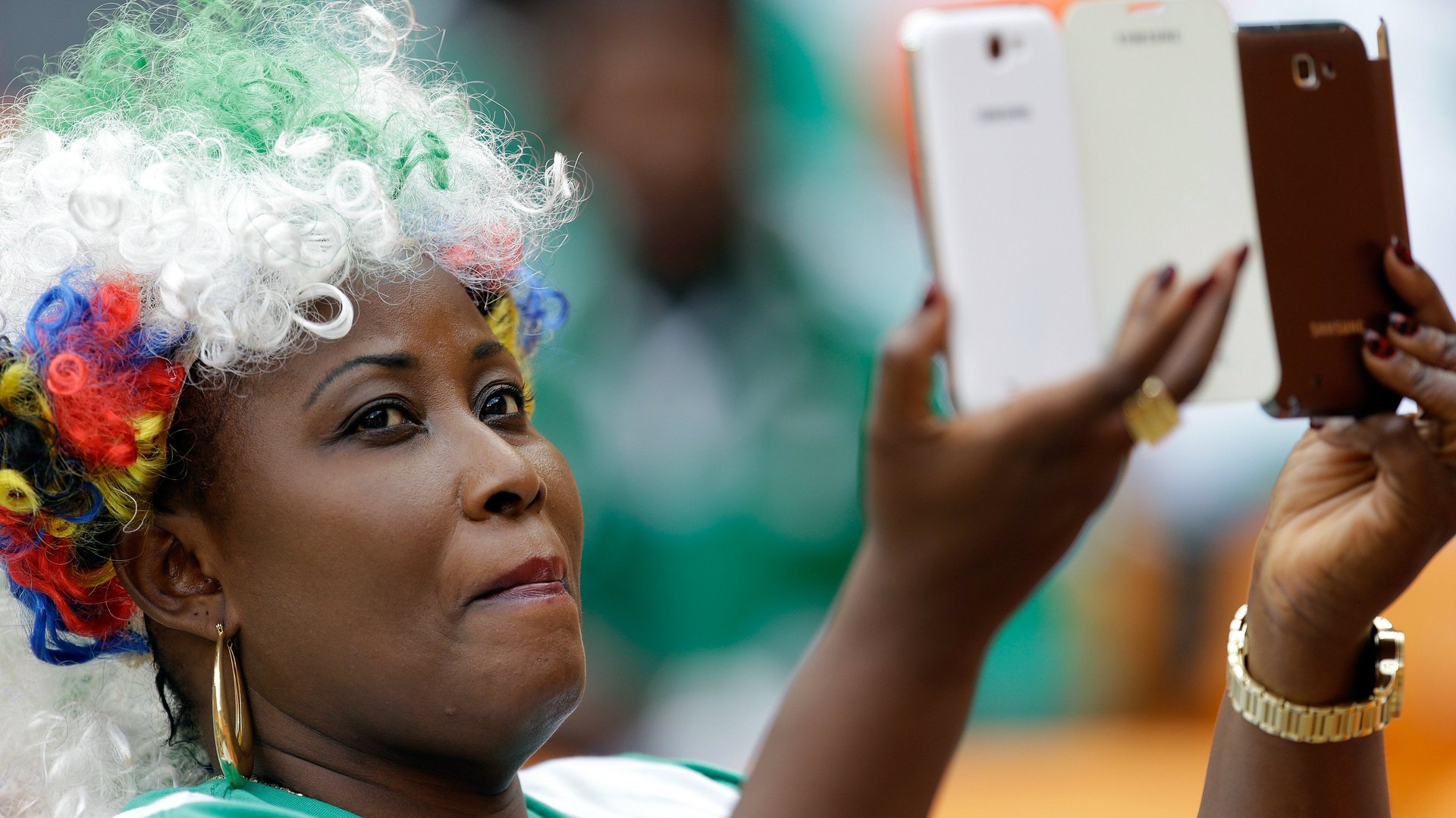Nigeria’s electricity problem is burning a $100 million hole in the pockets of phone companies
Nigeria’s biggest telecommunications companies are spending close to $100 million a year on diesel fuel to keep their networks running due to the country’s poor electricity supply.


Nigeria’s biggest telecommunications companies are spending close to $100 million a year on diesel fuel to keep their networks running due to the country’s poor electricity supply.
MTN, the market leader with a 43% market share, revealed it spends about $40 million annually to power its services in the country. South Africa’s MTN began operations in Nigeria in 2001 and now has 61.1 million subscribers–making Nigeria its largest market of the 21 countries it operates across Africa and the Middle East. Given Nigeria’s severe electricity issues, the company primarily powers its numerous base stations around the country with diesel for about 20 hours daily to keep its network online.
A back-of-the-envelope calculation based on MTN’s market share implies all four of Nigeria’s national mobile networks would need to spend a combined amount between $90 million to $100 million extra on diesel to keep operations running round the clock.
Nigeria has the capacity to generate around 5,000 megawatts of electricity. In comparison South Africa with just over a third of Nigeria’s population generates around 40,000 megawatts. Even then, Nigeria’s supply is very erratic and is often far below its capacity.
The lack of power in Nigeria has meant businesses run up high operating costs that affect everything from transportation to renting office space. The country is still in transition from a public electricity service to privatized generating and distributing companies, a process that was finalized two years ago.
The scale of the problem was highlighted in May, when MTN and Airtel (the No.3 operator) both curtailed services as the country’s economy almost shut down in one of the its worst fuel crises.
MTN’s high power bill in Nigeria, which is says accounts around 60% of its operating costs, could have been deployed in other critical areas such as network expansion in the country said an executive. But with the company spending more in Nigeria than it spends in any other country it is forced to focus more on keeping its services running by ensuring base stations remain powered across the country.
Nigeria’s other telecommunications companies, despite having a smaller subscriber base than MTN’s, also feel the burden of high costs. Globacom, with the second highest market share (21%) in the industry, based on MTN’s stated expenses could be spending in the region of $20 million. Similarly, Airtel with market share which is marginally smaller (20%) than Globacom’s could be spending around the same amount. Etisalat, with the smallest market share (15%), are likely spending less than $15 million. In total, Nigeria’s electricity problems could be costing its biggest telecommunications companies close to $100 million annually.
In part because of Nigeria’s large population, the country is seen as one of the key markets for bringing the ‘next billion’ people online–primarily via mobile devices. All the local networks have made progress in marketing mobile data services but services are probably not as robust as they could be due to under-investment.
These high costs are inevitably damaging these companies’ operating profit margins as Lagos-based economist, Tunji Andrews says ‘these costs, which may have been bearable in the early growth stages of these companies, have become a burden weighing heavily on their books’.
Telecommunications remains a major sector in the Nigerian economy. Data from the Nigerian National Bureau of Statistics shows the industry contributed $6.7 billion to the country’s GDP in the first quarter of 2015.